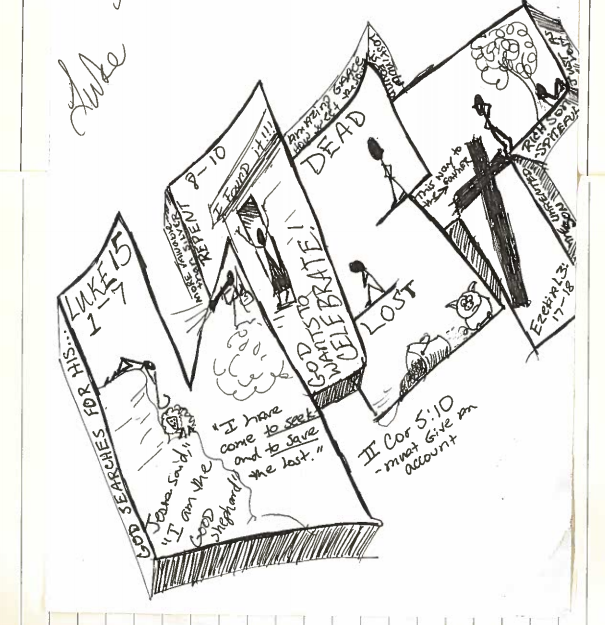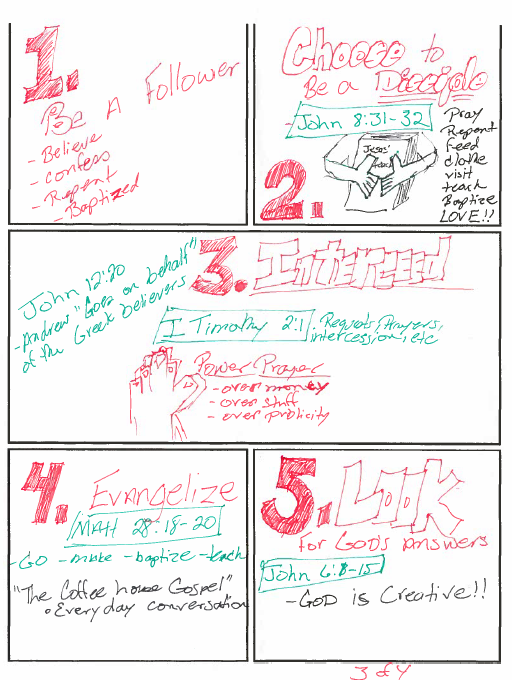I have tried preaching for a number of years. I do not get a lot of opportunities to preach probably because I'm not good at it.
I love studying the Bible and what was going on in history around the events of the Bible.
I love learning how things were done in the times of the Bible accounts of History as opposed to what we think in our western mind.
I love figuring out what God would have me do with what I learn, or apply it to my life. (Which in reality isn't that difficult, God is pretty clear on most things.)
I love figuring out what is cultural, what is a suggestion and what is a "mandate" from God. (This is mostly so I can play Devil's advocate with people who are hard nosed on non-salvation issues.)
I love compiling these things in my mind and thinking over them, meditating for you churchie peoples.
I do not love writing a sermon.
I feel like it is writing a paper for school or work. I feel life it's pre-programming me to stand up in front of people to be different that I really am. I am purposefully acting outside my character and personality.
I went to Bible college and had excellent men teach me the art and science of preaching. I still use those study notes and format to get myself thinking and processing and compiling in an orderly manner. Thank you Dr. Enyart for your homiletical handbook. The writing of the sermon, that is where I fail myself,and I think God.
What have I taken to the pulpit with me, you may ask. I have tried a full manuscript sermon. Everything is written out word for word. I ended up reading it with my head down, even though I knew it inside and out. I have tried an extremely simple outline, but I would get distracted and not know what I was doing and have to take a second to figure it out. That is embarrassing and does not bring glory to God. I have tried a "heavy" outline, that is somewhere between the two. I have done fairly well, but still get confused or lost, and have a hard time doing it.
 I used to drive my wife nuts. When I take notes in a class or church, I draw a lot of my notes. I try not to let people see it, so they don't think I'm just doodling. They are not specific notes. I don't put much detail. I use an ink pen and what I have is what I have. The process does not allow for detail. Key words, images, quotes, and scripture are included in the drawing in one form or another. I spend less time thinking about what the preacher said, thus missing what is said next. I do seem to retain more of the picture, important things.
I used to drive my wife nuts. When I take notes in a class or church, I draw a lot of my notes. I try not to let people see it, so they don't think I'm just doodling. They are not specific notes. I don't put much detail. I use an ink pen and what I have is what I have. The process does not allow for detail. Key words, images, quotes, and scripture are included in the drawing in one form or another. I spend less time thinking about what the preacher said, thus missing what is said next. I do seem to retain more of the picture, important things.Along came Paul.
Paul is the Associate Minister at Cornerstone. We were both writing sermons one week and discussing our process. We both hated our outlines and preaching notes. He made mention of a guy that draws his sermon notes. I didn't think too much about it at the time, but the idea stuck, and swirled around until I could see the pictures on the page. After all we think in images. It's completely natural. This sent me to the greatest authority I have at my disposal, Google.
I found a whole world of Sketch-takers.(See how I replaced "notes" with "sketch", oh yeah.)
There is a group called the SketchnoteArmy.com/blog . Their benevolent holy man and prophet is Mike Rodhe (http://rohdesign.com/) who wrote books called the Sketchnote handbook and Sketchnote workbook. These seem fun and you may have seen Mike Rodhe's commercials on TV, though I forget what they are at the moment. Check them out. (You can get me one of those books for Christmas.)
This got me to thinking. If I like to take notes by drawing. If I think in pictures. If I like drawing. If these other people are doing this, then maybe I can too. So I took my sermon notes and started thinking of them as a Big Picture Diagram.
What I came up with is more like a story board. I printed a comic book page layout I thought would work for me. I put really important notes in red. I wrote scripture stuff in green. I think I used orange and a couple other colors for fun. I really had to think about what was in the Bible, in order to draw it, and then to describe or make it usable. Again, I kept them simple. I'm not that good of an illustrator, so simple is good.

So here is what I came up with . This is a sermon on the Apostle Andrew. I was terrified to preach with this method. But the words of the great Yoda returned to me, "Do or Do Not. There is NO TRY." So I went with it.

I was surprised. I didn't get lost in my sermon and scratch the top of my head while I figured it out. I made better eye contact. I told the stories better. I didn't have to think about putting words together, because I just had a BIG word or picture to bounce from. I also believe it made me think of the sermon as something alive. Something that has motion and activity and feelings. It made events take place in time and space, because I had to think about where, when, who, how things were happening in order to draw them. I got all of that from a stick figure with his hands raised standing in the water. I don't know if my sermon was any better, but I seemed to present it better.
Why is this important. I have waited 36 years for someone to tell this is ok. So, if you think this way, IT IS OK. Let yourself draw your notes. I'm not talking about doodling and zoning out. I'm talking about staying engaged and interacting when your brain wants to repel off a cliff, so you can bike down the mountain. If this works for your kid, get them a good mole skin blank paged journal and colored Sharpie pens. If you have to preach or present, try it. Nobody is going to know unless you show them. It may just help you get more out of your topic.
Set your active brain into motion on a direction with a Good Understandable Notes.




